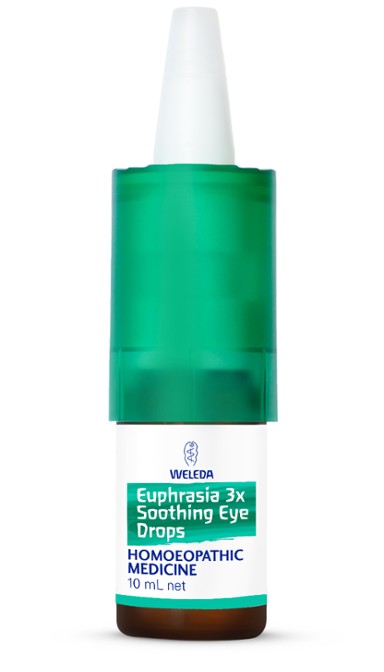
Dry Eyes. Symptoms and Causes
When the tear film of our eyes becomes imbalanced, it can lead to dry eyes, with redness, irritation and a gritty feeling under the eyelid.
Our tears keep our eyes clean and moist with every blink. The tear film covers the cornea and conjunctiva, protecting the eye from foreign bodies such as dirt particles and bacteria. If the tear production becomes dysfunctional, it can lead to dry eyes.
What causes dry eyes?
If the tear film does not provide the eyes with sufficient moisture, they become dry and irritated, with a gritty feeling or “foreign body sensation” in the eye every time you blink. The eyes react sensitively to light and often feel tired or overworked. It becomes unpleasant or even impossible to wear contact lenses. Dry eyes can result from staring at a computer screen for too long, external influences such as strongly air-conditioned rooms or dry heating air, the regular intake of medication, and decreased tear production as we get older. Paradoxically, dry eyes can also lead to more watery eyes.
Why are my dry eyes watering?
Watery eyes are one of the symptoms of the condition known as dry eye syndrome (keratoconjunctivitis sicca). If the production of tears is reduced or if there is an imbalance of the tear film, the eye becomes sensitive to stimuli such as sun, wind, dry room air and heat. The surface of the eye dries out, which triggers the tear glands to produce more tears. These “reflex tears” lead to the paradox that dry eyes can become flooded with watery tears.
How is the tear film structured?
The tear film consists of three layers, with an inner and outer side. The mucin layer is the sticky, innermost layer directly above the cornea. The middle layer is the aqueous layer, and consists mainly of water. It is covered by the outermost layer, the lipid layer. The oils of this layer are produced mainly by the meibomian (tarsal) gland. This layer keeps the eyes from drying out. Hyaluronic acid is a natural component of the vitreous body, the cornea and conjunctiva of the human eye. It helps to stabilize the tear film and keep it on the eye. The salt of hyaluronic acid, sodium hyaluronate, behaves very similarly to the body’s own tears and forms a clear, long-lasting protective film on the eye surface.
Why are eye complaints more frequent in summer and winter?
A scientific study has documented that in Europe, the risk of dry eyes is highest in summer and winter. Possible triggers for symptoms of dry eyes are wind, sun, heat [1] as well as air conditioning. The results of another study indicate that overexertion can increase the risk of dry eyes [2].
[1] Van Setten G et al. Evidence of seasonality and effects of psychrometry in dry eye disease. Acta Ophthalmol 2016; 94: 499–506.
[2] Porcar E et al. Visual and ocular effects from the use of flat-panel displays. Int J Ophthalmol 2016; 9: 881–885.










